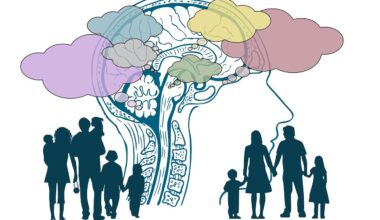The Path to Auditor Certification: Steps and Requirements
Becoming a certified auditor is a deliberate process that requires dedication, training, and meeting specific requirements. The first step in this journey is to gain an understanding of the fundamental skills and knowledge required in auditing. Aspiring auditors should engage in education specific to accounting and auditing principles, such as obtaining a bachelor’s degree in these fields. Furthermore, it is beneficial to immerse oneself in courses that cover relevant regulations, standards, and methodologies used in the industry. Once a strong educational foundation has been laid, aspiring professionals can pursue hands-on experience through internships or entry-level positions. This practical experience is essential for developing skills and acquiring insights into the auditing process. Additionally, many certification bodies have specific work experience requirements that must be fulfilled before taking certification exams. Networking, mentorships, and continuous learning also significantly contribute to an auditor’s growth. Consequently, individuals should seek additional training, such as workshops and related certifications to enhance their qualifications. Understanding these steps is vital for anyone aiming for success and credibility in the auditing field.
Once an aspiring auditor completes the necessary educational and experiential prerequisites, it’s crucial to identify the specific certification sought. Some prominent certifications include the Certified Internal Auditor (CIA), Certified Public Accountant (CPA), and Certified Information Systems Auditor (CISA). Each of these credentials has distinct requirements and specializations, providing various pathways based on your career interests. Generally, obtaining these certifications involves passing challenging examinations that assess an individual’s knowledge and skills in auditing practices. To prepare for these exams, candidates should utilize study materials such as textbooks, online courses, and practice tests designed specifically for the respective exams. Developing a study plan and adhering to a timeline also aids candidates in managing their preparation effectively. Joining study groups or forums can provide additional support and motivation through peer interaction. After successful completion of the exam, prospective auditors must fulfill other obligations, such as obtaining continuing education credits to maintain their certifications. This requirement emphasizes the importance of staying updated with industry trends and regulations related to auditing, enabling professionals to remain competitive in their careers.
Many professionals also consider acquiring certifications in specialized areas within auditing. For instance, focusing on internal auditing, IT auditing, or government auditing can enhance career opportunities. Each specialization may involve different sets of competencies and knowledge, providing certifications specific to those fields. Moreover, specialized certifications, such as the Certified Fraud Examiner (CFE) or the Certified Government Auditing Professional (CGAP), offer opportunities to distinguish oneself in the audit profession. Pursuing these credentials may involve additional study and experience, but they can further elevate an auditor’s qualifications and expertise. Networking plays a significant role in successful professional development, so consider participating in industry events or joining professional organizations. Engaging with fellow auditors and industry experts can lead to essential insights and career advancement. Continuously updating certifications and pursuing new learning opportunities can help auditors remain relevant in a rapidly changing environment. As norms and practices evolve, adapting to changes in regulations and technology is critical for sustaining a successful audit career. Taking the initiative to pursue specialized knowledge reflects positively on an auditor’s commitment to lifelong learning.
Maintaining Certification
Maintaining auditor certification is an essential aspect of a successful auditing career. Most certification bodies require auditors to earn continuing professional education (CPE) credits regularly. These credits may be accrued in various ways, including attending seminars, workshops, conferences, or pursuing additional college courses related to auditing. Regularly reviewing updates on auditing standards and best practices is necessary to stay informed of new developments in the field. Professional organizations can also provide access to resources that support ongoing education requirements. Emphasizing knowledge and skills through CPE helps auditors enhance their performance and provide better value to their clients. Moreover, being active in continuing education demonstrates a commitment to proficiency and ethical behavior in the profession. Consequently, auditors should assign importance to keeping their knowledge current. Collaboration with peers, seeking mentorship opportunities, and engaging in professional discussions further contribute to professional growth. Additionally, organizations such as the Institute of Internal Auditors (IIA) offer various resources for members who wish to expand their knowledge base and excel in their auditing careers.
Certification bodies often set clear guidelines for maintaining compliance, including the specific amount of CPE hours required within a designated time frame. It’s imperative for auditors to track their progress toward fulfilling these requirements accurately. Many professionals utilize various tools, such as spreadsheets or apps, to monitor their CPE activities and ensure compliance before deadlines. Furthermore, auditors should choose educational opportunities that align with their career objectives, thereby supporting skill development in relevant areas. Attending webinars or participating in virtual learning platforms can also serve as flexible options to accumulate CPE credits while balancing work and personal commitments. Moreover, connecting with mentors in the field can provide further insights into relevant training opportunities that align with personal growth goals. Keeping a record of CPE activities can prove useful during audits by certification bodies or employers, highlighting auditors’ commitment to professional development. Ultimately, maintaining certification through lifelong learning ensures that auditors possess the necessary skills and knowledge to adapt effectively in an ever-evolving landscape.
Challenges Faced in Auditor Certification
The path to auditor certification is not without its challenges. The process requires considerable time and investment in obtaining the necessary education and experience. Many candidates may struggle with maintaining a balance between their professional responsibilities and their studies. This often leads to increased stress and requires effective time management skills. Additionally, the rigorous nature of certification exams can be daunting, as candidates must grasp complex concepts and apply them under pressure. Many aspirants may benefit from structured study plans or enrolling in preparatory courses designed to enhance exam readiness. Finding mentorship and networking opportunities within the industry can also enable candidates to share experiences and acquire valuable advice on navigating the certification process. Furthermore, ongoing adjustments in regulatory frameworks and auditing standards also present additional hurdles. Auditors must commit to being lifelong learners, regularly reviewing updates related to their fields of specialization. Ultimately, being proactive in seeking support and resources can significantly alleviate the weight of these challenges, contributing positively to successful auditor qualification.
In addition to the academic and professional challenges associated with becoming an auditor, there are often psychological hurdles that candidates face. Test anxiety is a common concern that may affect performance during certification examinations. To overcome this, developing effective coping mechanisms, such as practicing relaxation techniques or participating in mock exams, can instill a sense of confidence and preparedness. Furthermore, emotional support from family, friends, and fellow candidates fosters a positive environment, encouraging perseverance even in the face of setbacks. Realizing that failure or setbacks may occur in the process can help candidates navigate the journey more smoothly. Cultivating a resilient mindset is essential to address obstacles that arise throughout the audibility certification journey. Exploring alternative career paths is also valid for those who may realize that traditional auditing roles do not align with their interests. Understanding personal goals and being adaptable in pursuit can lead to fulfillment in other related professions within the accounting or financial domain. Ultimately, embracing this journey with a determined mindset and seeking support will pave the way for success in auditing.





